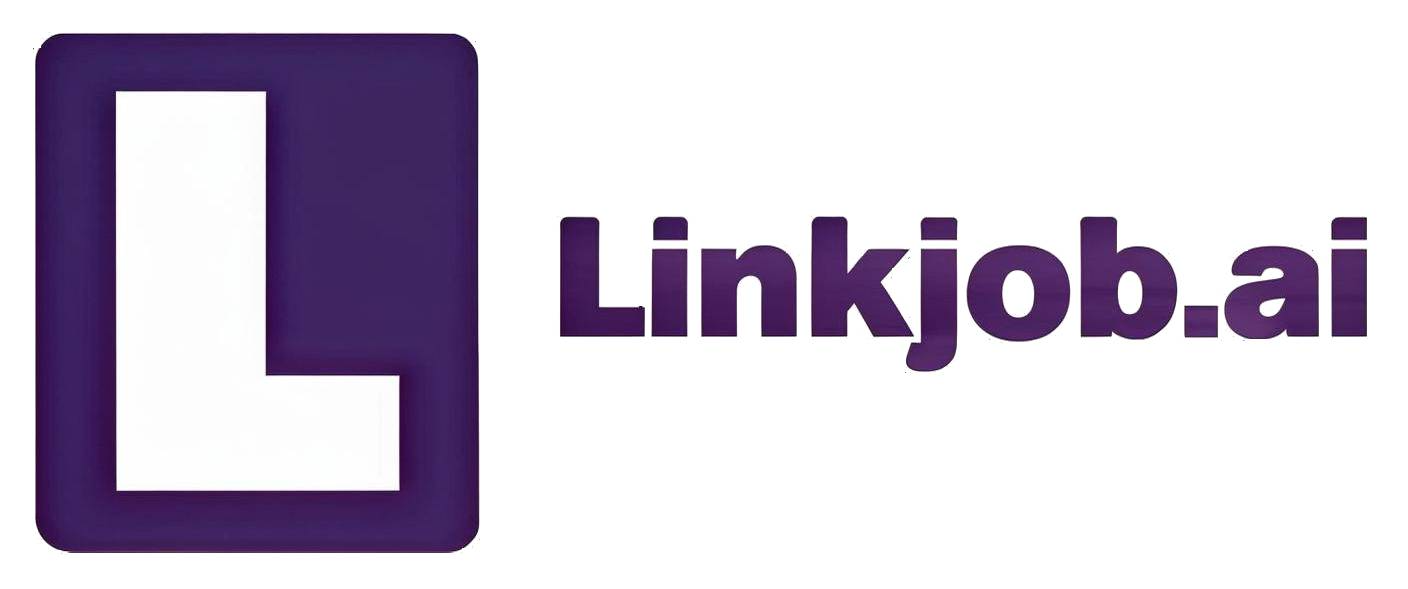My Answers To Tech SEO Manager Interview Questions That Get Results

I interviewed for a few tech SEO manager roles this year. It's a cross between two fields. It's about more than just understanding technical SEO and website architecture, but I also have to deal with marketing strategy and business growth.
I encountered a lot of challenging questions because the role also assesses leadership, which meant the interview questions were very in-depth and even a bit sharp. This experience was tough, but I took the time to summarize all the questions I came across. Now, I've organized my answering strategies for you.
Interview Challenges
Common Pain Points
When I prepare for technical SEO manager interviews, I notice a few challenges pop up again and again. Interviewers love to test my ability to handle unexpected technical questions. I often get questions about diagnosing sudden drops in traffic or leading complex website migrations. Sometimes, they ask about crawling, indexing, or rendering issues that I haven’t seen before. These topics can feel overwhelming, especially when I need to explain both my successes and failures.
Here are some of the most common pain points I face:
Interviewers ask about handling large SEO projects and getting buy-in from stakeholders.
I need to show I can diagnose and resolve technical website issues, like site speed or architecture problems.
They want proof of my coding skills and my ability to optimize for both search engines and users.
I must stay current with SEO trends and algorithm changes.
I get tested on my communication skills, especially when explaining technical concepts to non-technical teams.
I need to balance search engine requirements with user experience.
Sometimes, I have to share stories about failed strategies and how I learned from them.
These challenges push me to think on my feet and communicate clearly.
Overcoming Obstacles
I’ve learned a few strategies that help me tackle these obstacles and perform well under pressure.
I prepare structured, experience-based answers. I use the STAR method to describe specific problems, the actions I took, and the results I achieved.
I prioritize tasks by impact. I focus on what matters most for SEO performance and user experience, then use project management tools to stay organized.
I practice sharing concrete examples, like fixing a misconfigured robots.txt file or leading a successful site migration.
I balance strategic vision with hands-on execution. I show I can manage teams and still dive into technical details.
I highlight leadership by talking about mentoring and collaboration.
I connect my SEO work to business outcomes, using metrics that matter to stakeholders.
I avoid jargon and focus on clear storytelling.
Top Technical SEO Managers Interview Questions
Essential Questions
When I prepare for technical seo managers interview questions, I always start by reviewing the most common topics. Interviewers want to see if I understand both the basics and the advanced concepts. Here are the questions I see most often:
How do you conduct a technical SEO audit?
What strategies do you use to optimize page speed?
How do you ensure a website is mobile-friendly, and why is it important?
Can you describe a time when you had to troubleshoot a significant drop in organic traffic?
How do you improve crawlability and fix crawl errors?
What steps do you take to monitor and optimize Core Web Vitals?
How do you integrate SEO with other marketing efforts?
What is your approach to international SEO and content localization?
How do you use tools like Google Search Console or Ahrefs in your workflow?
What is your leadership style when managing SEO teams and cross-departmental projects?
Tip: I always expect questions about schema markup, JavaScript SEO, XML sitemaps, and structured data. Interviewers love to test my knowledge of these technical areas.
Sample Answers
I know that strong answers to technical seo managers interview questions need more than just facts. I show my problem-solving skills and critical thinking by sharing real examples and clear steps. Here are some sample answers I use:
1. Troubleshooting Traffic Drops
Question: Can you describe a time when you had to troubleshoot a significant drop in organic traffic?
My Answer:
Last year, I noticed a sudden drop in traffic after a site redesign. I started by checking Google Analytics and Search Console for any crawl errors or lost backlinks. I found that several important pages had been set to "noindex" by mistake. I worked with the development team to fix the tags and resubmit the sitemap. Traffic recovered within two weeks. I always follow a step-by-step process:
Check for algorithm updates
Review technical issues
Analyze backlinks
Collaborate with the team to fix problems
Note: Stay calm and focus on data. Never jump to conclusions before checking all possible causes.
2. Improving Crawlability
Question: How do you improve crawlability and fix crawl errors?
My Answer:
I define crawlability as how easily search engines can find and navigate my site. I look for broken links, blocked pages, or missing sitemaps. I use Google Search Console to spot crawl errors. I check the robots.txt file and XML sitemap to make sure everything is set up correctly. I optimize internal linking and site structure to help bots move through the site efficiently. I always give practical examples, like fixing a broken sitemap or updating robots.txt to unblock important pages.
Step | Action |
|---|---|
Identify Errors | Use Search Console to find crawl issues |
Fix Blockages | Update robots.txt and XML sitemap |
Improve Structure | Optimize internal links and navigation |
3. Core Web Vitals Optimization
Question: What steps do you take to monitor and optimize Core Web Vitals?
My Answer:
I monitor Largest Contentful Paint, First Input Delay, and Cumulative Layout Shift using Google Search Console. I optimize images, enable lazy loading, and reduce JavaScript execution time. I work with developers to improve server response. I explain how these metrics affect rankings and user experience. I share examples of audits and the challenges I faced during optimization.
Tip: I always mention the tools I use and the impact of my changes on both rankings and user satisfaction.
4. Integrating SEO with Marketing
Question: How do you integrate SEO with other marketing efforts?
My Answer:
I work closely with content, social media, and PPC teams. I use keyword research to guide content creation and optimize social media posts for search visibility. I align SEO goals with broader marketing strategies to achieve business objectives. I share stories about successful collaborations and how they improved overall results.
5. Leadership and Team Collaboration
Question: What is your leadership style when managing SEO teams and cross-departmental projects?
My Answer:
My approach to leadership is all about sharing knowledge and fostering open communication within my team. I quickly resolve conflicts and ensure everyone stays focused on our shared goals. When it comes to delegating tasks, I always prioritize based on a clear understanding of urgency and impact. I take full responsibility for any mistakes and immediately create action plans to fix issues. Ultimately, I connect my leadership style to tangible outcomes, such as improved project delivery or a significant boost in team morale.
Note: I use clear communication and solution-oriented thinking in every answer.
When I answer technical seo managers interview questions, I focus on showing my ability to prioritize tasks, solve problems, and communicate clearly. I use data-driven tools and real examples to back up my answers. And I always explain my thought process and the steps I take to reach solutions. This approach helps me stand out and shows interviewers that I am ready for the challenges of a technical SEO manager role.
Answer Strategies
Structuring Responses
When I answer technical seo managers interview questions, I always use a clear framework. The STAR method works best for me. It helps me organize my thoughts and keeps my answers focused. I start by describing the Situation, then explain the Task, outline the Actions I took, and finish with the Results. This method makes my stories easy to follow and shows my problem-solving skills.
Here’s a quick table I use to remind myself how to structure my answers:
STAR Component | What I Share |
|---|---|
Situation | The context or challenge I faced |
Task | My specific responsibility or goal |
Action | The steps I took to solve the problem |
Result | The outcome, with numbers or clear improvements |
I always try to be specific, use numbers when possible, and pick examples that match the job I want. I also tailor my responses to the company. If I interview with a large e-commerce brand, I focus on site speed and crawlability. For a SaaS company, I highlight technical integrations and scalable solutions. I avoid criticizing others and instead show how I work well with teams. I adjust my language based on who interviews me.
Tip: Practicing with AI-powered mock interviews, like those from Linkjob, helps me get used to follow-up questions and perform better during live interview.
You've mastered my answers, now it's time to put them into practice.
When preparing for a Tech SEO Manager interview, just reading my experience isn't enough. Linkjob is your best AI for interview. It helps you simulate realistic interview scenarios and provides real-time, personalized answers during a live interview.
Real-World Examples
I find that real examples make my answers stand out. For instance, when I worked with a company, I faced a big traffic drop after a website launch. I ran a full technical SEO audit, optimized old content, and improved social media SEO. The result? Users jumped by over 400%, and our search terms exploded. At another company, I solved keyword competition between the brand and dealers by coordinating targets and tailoring content. Dealer inquiries shot up by 40%, and traffic doubled. These stories show my ability to handle tough challenges and deliver results.
When I prepare for technical seo managers interview questions, I always pick examples that fit the company’s needs. I research the company, prepare five strong stories, and practice using the STAR method. This way, I can apply these stories to most of the interview questions.
Tools and Resources
SEO Tools
When I prepare for technical SEO manager interviews, I always rely on a solid toolkit. These tools help me analyze websites, spot issues, and track improvements. Here are the ones I use most often:
Google Search Console: I check indexed URLs, crawl errors, and keyword performance. This tool helps me find hidden problems.
Screaming Frog: I run technical audits to uncover broken links, duplicate content, and crawlability issues. It’s my go-to for deep site analysis.
Ahrefs: I analyze backlinks and monitor competitors. I use it to find link-building opportunities and track my site’s authority.
SEMrush: I research keywords, audit sites, and compare my SEO strategy with competitors. It’s great for planning campaigns.
Google Analytics: I track website traffic, user behavior, and conversion rates. This data helps me connect SEO work to business results.
Google PageSpeed Insights: I test site speed and get suggestions for faster loading times.
Similarweb: I find new keyword ideas and estimate search volume.
Among them, the tools I use on a daily basis include Google Search Console, SEMrush, Google Analytics, and Similarweb.
Staying Updated
SEO changes fast. I make it a habit to stay ahead of trends and algorithm updates. Here’s how I keep my knowledge fresh:
I follow top SEO blogs and subscribe to industry newsletters. This keeps me informed about Google updates and new strategies.
I attend webinars and online events. Experts share tips and case studies that help me adapt my approach.
I audit my websites regularly using Google Search Console. This helps me catch issues before they hurt rankings.
I test mobile-friendliness with Google’s Mobile-Friendly Test. I want every site to work well on phones and tablets.
I use tools like SEMrush, Similarweb, and Ahrefs to optimize content and monitor competitors.
During live interviews, I use Linkjob’s real-time AI assistant. It listens, transcribes questions, and suggests context-aware answers, helping me stay calm and focused under pressure. This support makes a big difference, especially when I face tough technical questions.
FAQ
How do I handle unexpected technical SEO questions in interviews?
In the main article, I mentioned that before my interviews, I prepare five perfect stories. These stories cover the most important skills and qualities I want to highlight. You can do the same. Then, if an unexpected question comes up, try to adapt one of these five stories to fit your answer.
How do I showcase leadership in SEO interviews?
I talk about mentoring team members and leading projects. I share stories where I solved conflicts or improved collaboration. I use numbers to highlight results, like increased traffic or better rankings.
Which SEO tools should I mention during interviews?
I always mention Google Search Console, Ahrefs, and SEMrush. I explain how I use each tool to audit sites, find issues, and track improvements. I give examples from my own workflow.
Can Linkjob help me during live interviews?
Yes! Linkjob listens to interview questions, transcribes them, and suggests answers in real time. This helps me stay focused and respond confidently, especially when I get tough or unexpected questions.

